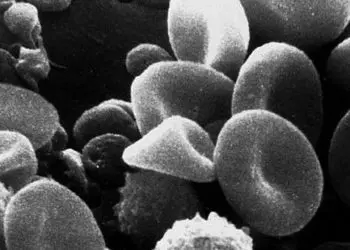Machine-learning based prompts for serious illness conversations reduces end of life systemic therapy use
1. The proportion of patients receiving serious illness conversations (SICs) was increased in the intervention groups.
2. Patients receiving SICs were less likely to receive systemic therapy at the end of life.
Evidence Rating Level: 1 (Excellent)
Study Rundown: Previous studies have shown that while serious illness conversations (SICs) focusing on illness comprehension and goals of care priorities between patients and their physicians improve quality of life and possibly reduce systemic therapy use, most patients die without having had a SIC. A few factors contribute to this, including physician perceptions regarding the timing of SICs. This study investigated the effect of machine learning-based behavioural interventions, or reminders, on oncologist initiation of SIC with patients at high risk of mortality in 180 days, as determined by a machine learning algorithm. The primary outcome of this study was the rate of SICs in the control period compared to the intervention (reminder) period. Secondary outcomes include the rate of systemic therapy use. There was a significant increase in SIC in all patient encounters as a result of the reminder intervention. This was also true when evaluating high-risk and non-high-risk patients separately. The proportion of patients receiving systemic therapy was reduced in the intervention group. Limitations to this study include that it was conducted out of a single-health system and may not be applicable in other contexts. Overall, the results from this study suggest that machine learning-based behavioural interventions, or reminders, can affect the rate of SIC initiation and reduce the use of systemic therapy in patients near end-of-life.
Click to read the study in JAMA Oncology
Relevant Reading: Shifting to serious illness communication.
In-Depth [randomized controlled trial]: This stepped-wedge randomized trial determined the effect of machine-based learning behavioural interventions, or reminders, on physician-initiated SICs with patients identified as having a high risk of death in 180 days. There were 20,506 patients included in the study and 41,021 encounters, 13.5% of which were with patients at high risk. In the intervention group, there was a significant increase in SICs among all patient encounters (adjusted odds ratio (aOR), 2.09; 95% confidence interval (CI), 1.53-2.87). This was true among high-risk patients (aOR, 2.62; 95% CI, 1.84-3.72) as well as non-high-risk patients (aOR, 2.07; 95% CI, 1.52-2.82). Fewer patients in the intervention group received systemic therapy before death compared to those in the control group. Of all decedents, 7.5% compared to 10.5% (aOR, 0.25; 95% CI, 0.11-0.57) received treatment. Similar results were found for high-risk decedents, with 7.2% compared to 8.3% (aOR, 0.37; 95% CI, 0.13-1.04) receiving treatment.
Image: PD
©2023 2 Minute Medicine, Inc. All rights reserved. No works may be reproduced without expressed written consent from 2 Minute Medicine, Inc. Inquire about licensing here. No article should be construed as medical advice and is not intended as such by the authors or by 2 Minute Medicine, Inc.









